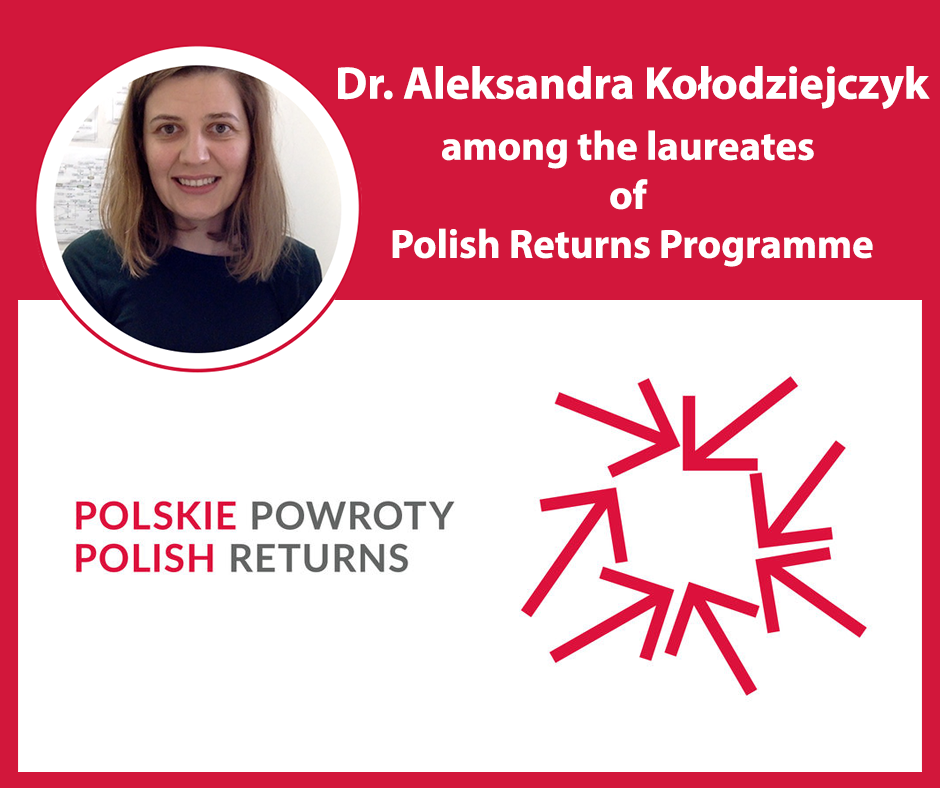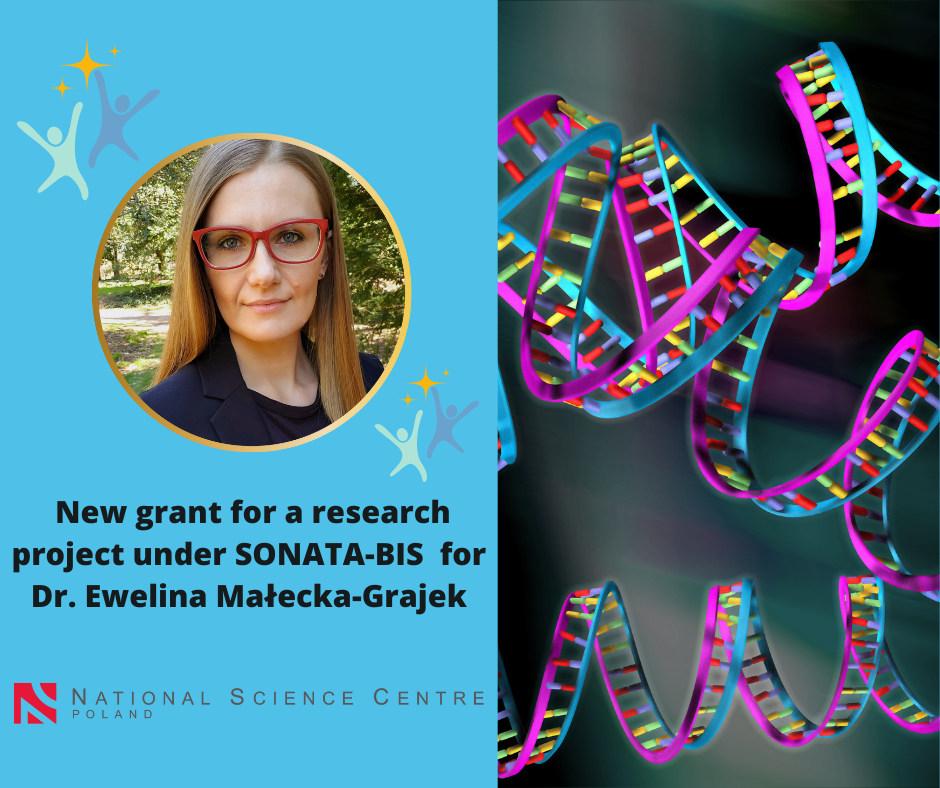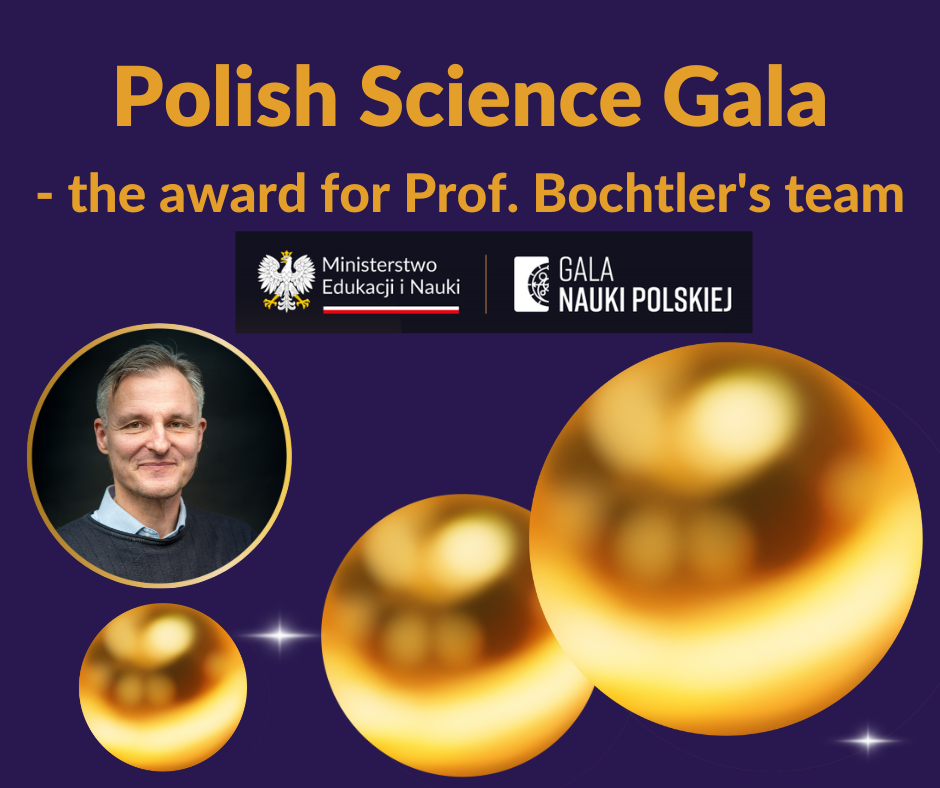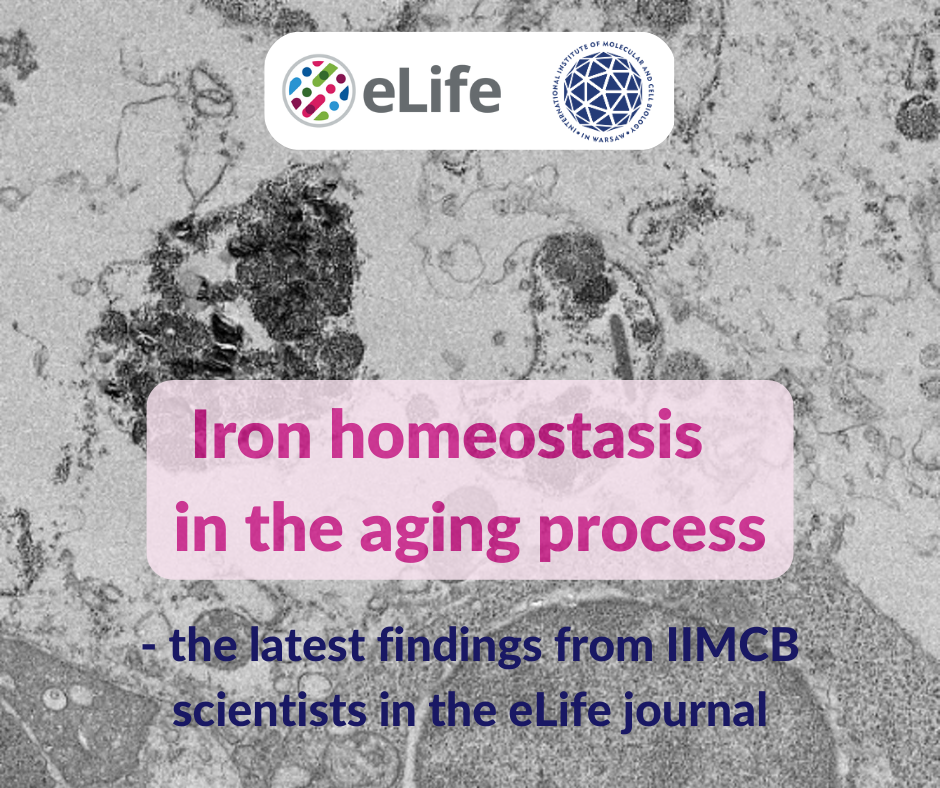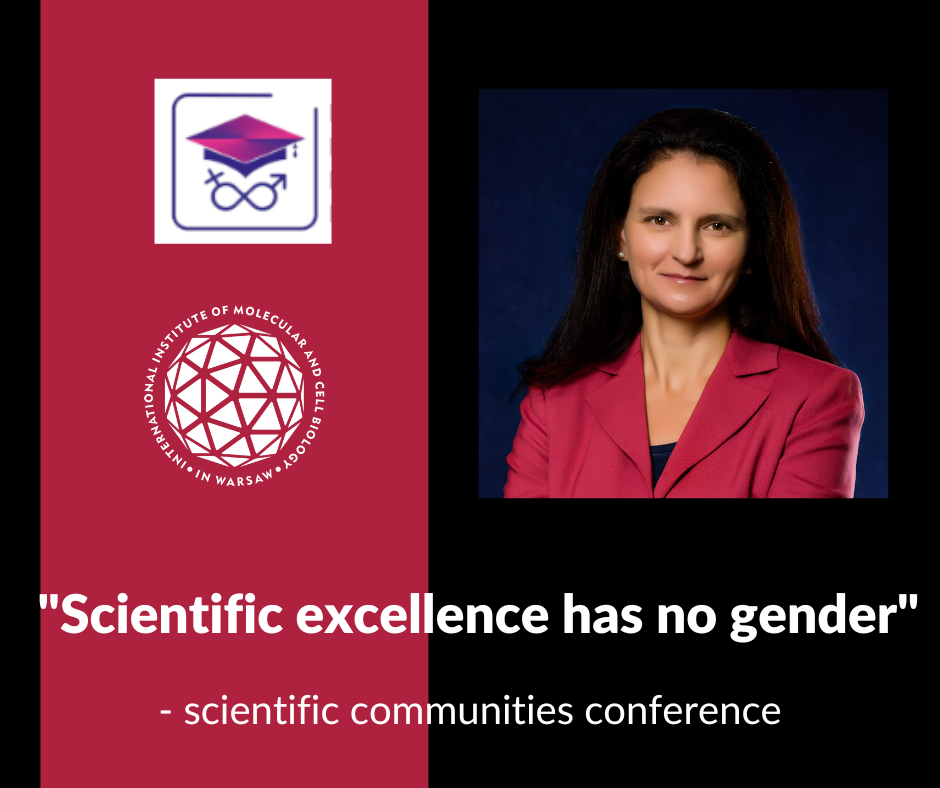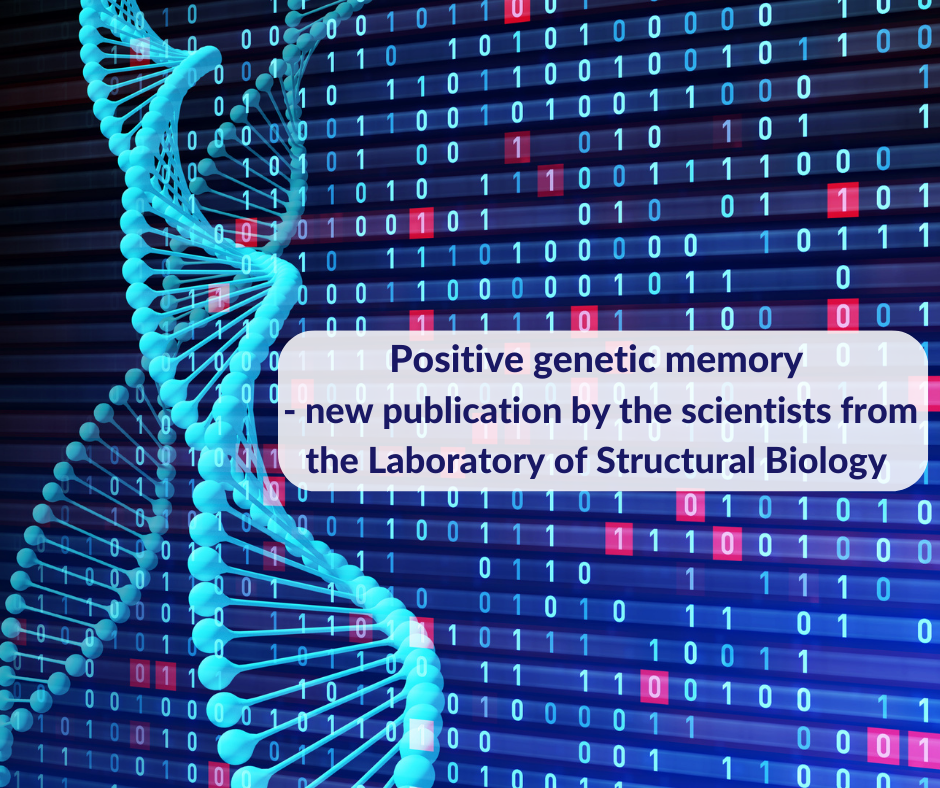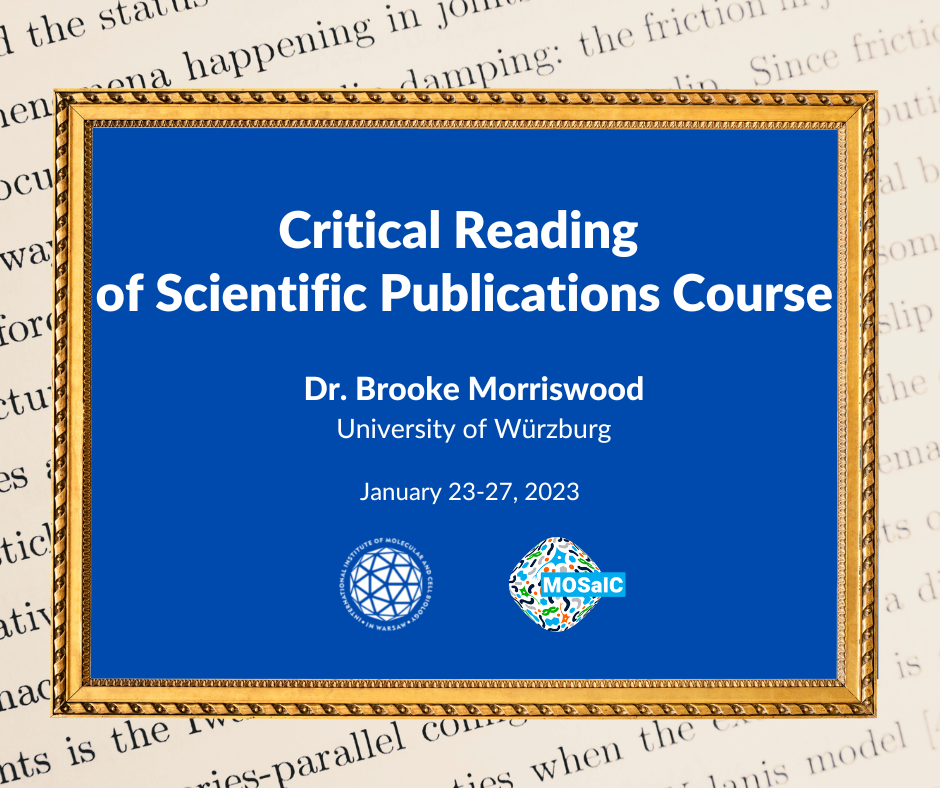Epilepsy is one of the most common neurological disorders affecting people around the world. According to WHO’s estimates, about 60 million people suffer from it. In Poland, the disease affects about 1% of the total population. Despite significant advances in epilepsy research over the past few decades, it is still a disease that often remains undiagnosed or inadequately treated. The reason of this situation is the fact that even in case of diseases with a known origin, many questions still remain without answers, as it is difficult to grasp all the aspects to develop an effective therapy. The use of animal models, such as zebrafish, has made a great contribution to the study within this area.
We are pleased to inform that Justyna Zmorzyńska from the Laboratory of Molecular and Cellular Neurobiology in the IIMCB was invited to participate in a collaborative project to create an educational resource, the Handbook of animal models in neurological disorders, edited by Colin R. Martin, Vinood B. Patel, and Victor R. Preedy (Elsevier, 2023). Olga Doszyń, Tomasz Dulski, and Justyna Zmorzyńska delivered a chapter entitled ”The zebrafish model of Tuberous sclerosis complex to study epilepsy” in which they describe specific methodologies and concepts to study epilepsy in zebrafish larvae in a high-throughput manner and clinically-relevant adequacy. In this chapter, authors give details on breeding and genotyping of the animal model, on how to adequately measure brain activity and seizure-like behavior, how to analyze epileptogenesis, and which technologies should be used to study underlying molecular pathomechanisms.
The publication is available through the Open Gate website.
O Doszyn, T Dulski, J Zmorzynska. "The zebrafish model of Tuberous Sclerosis Complex to study epilepsy" in the Handbook of Animal Models in Neurological Disease edited by Colin Martin, Vinood B Patel and Victor R Preedy, Elsevier, 2023.
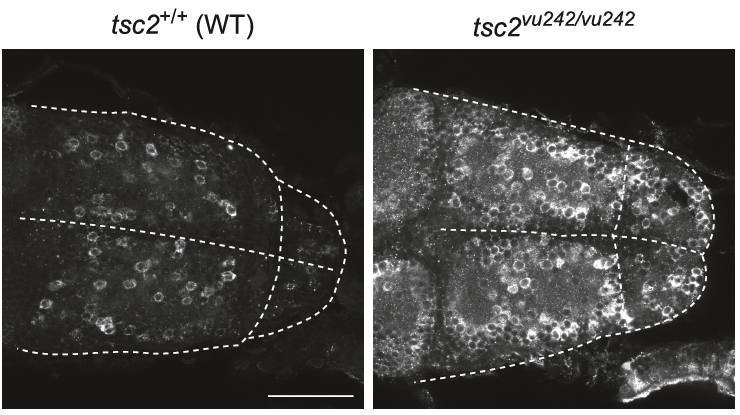
Dr. Aleksandra Kolodziejczyk, the Head of Laboratory of Cellular Genomics at the International Institute of Molecular and Cell Biology in Warsaw (IIMCB), has become a laureate of the Polish Returns Programme of the Polish National Agency for Academic Exchange (NAWA). The awarded grant will support Dr. Kołodziejczyk in the establishment of her group at the IIMCB and it will allow her to develop a research project within grant’s dedicated component funded by the National Science Centre (NCN). Congratulations to Aleksandra!
About the project
The microorganisms in the gut, called microbiota, affect physiology through metabolites which they produce. The liver is the first organ reached by nutrients and other molecules from the intestine, making the liver particularly exposed to microbial metabolites. The balance between microbiota, intestine, and liver functions is vital for gastrointestinal health. In this project, dr. Kołodziejczyk aims to describe the role of the gut in the context of liver cirrhosis and to unravel underlying mechanisms.
About the NAWA Polish Returns Programme
The aim of the Polish Returns Programme is to allow prominent Polish scientists to return to their country and take up employment in Polish higher education institutions, scientific units or research institutes.
On February 28 and March 1, 2023, the researchers from the International Institute of Molecular and Cell Biology in Warsaw participated in a training on Research Ethics & Integrity. Our lecturer was Prof. Ana Borovečki, the chair of the Department of Social Medicine and Organization of Healthcare at Andrija Stampar School of Public Health, School of Medicine, University of Zagreb, Croatia.
On February 28, 2023, the researchers took part in the lecture session on ethical considerations regarding research. Among others, this session included the following topics:
- types of research misconduct,
- reliability of research work,
- requirements for authorship,
- good practices for PhD students and their supervisors.
The session was very inspiring and it was of interest to both young and senior researchers. In particular, the participants enjoyed taking part in the on-line interactive tutorial.
On March 1, 2023, the PhD students participated in two workshops on research integrity. Prof. Borovečki explained and gave examples of the ethical guidelines for biomedical research in Europe. It was interesting to see how the ethical considerations differ in various parts of the world. The students used this opportunity to discuss ethical issues related to their own projects.
The Research Ethics & Integrity training was supported by the MOSaIC project which has received funding from the European Union’s Horizon 2020 research and innovation programme under grant agreement no 810425.

https://www.iimcb.gov.pl/en/news-press-office?start=99#sigProIda57ccd9ed5
We are happy to announce that Dr. Ewelina Małecka-Grajek, the Head of the Laboratory of Single-Molecule Biophysics, has received funding for a research project under the SONATA BIS 12 competition! The title of this project is "Dynamics of RNA-degrading complexes in bacteria" and the funding is more than PLN 3 million! Congratulations! Please find below a description of the winning project.
All biological processes, starting from bacteria fighting against viruses, to heart development in humans, are controlled by changes in the expression of genetic material and dynamic interactions between protein and RNA molecules. We already know a lot about how these proteins look structurally, what RNA elements they recognize, and what effect or lack of it such interactions have on the cell. In recent years, more and more emphasis has been placed on learning about the molecular mechanisms that govern biological processes. Through such research, not only can we understand how the mechanisms evolve, but we can also manipulate them better, for example, in the development of vaccines.
The goal of this project is to study the molecular mechanisms that govern communication between specific processes such as RNA silencing, RNA degradation, and translation in bacteria. Post-transcriptional regulation of genes is responsible for the bacterial response to stress, such as switching metabolism to available nutrients or adapting to host conditions in the case of pathogenic strains. This regulation is enabled by small RNAs (sRNAs) interacting with informational RNAs (mRNAs) on a complementary basis. The chaperone protein Hfq is involved in pairing sRNA and mRNA. The binding of mRNA by sRNA often leads to the degradation of both molecules, thus it lowers the expression of the target mRNA. In contrast, the degradation of most bacterial RNAs, including those paired by Hfq, is the responsibility of a protein complex called the degradosome containing the enzyme that catalyzes RNA cutting: ribonuclease E (RNase E). Interestingly, sRNAs are found in cells in complexes with Hfq, but also Hfq and the degradosome. It is not known what functional differences divide these complexes. The degradosome often also includes the RhlB helicase that unravels structured RNAs, so we hypothesize that the presence of the degradosome allows sRNAs to access previously inaccessible sites in target mRNAs. In addition, it is not known whether the formation of a stable mRNA-degrading complex depends on the order in which the individual components are attached. The previous studies have shown that most, but not all, sRNAs are degraded together with the target mRNA which would also lead to regulatory silencing. However, it is not known what factors determine sRNA degradation or whether Hfq is present in this process. If so, it is possible that short fragments remaining after RNA degradation remain bound to Hfq affecting the subsequent fate of target mRNAs. We are planning to reconstitute a catalytically active degradosome that also has the ability to interact with proteins. Using fluorescently labeled components, we will be able to track the folding of complexes in parallel with RNA catalysis.
The additional complexity of coordinating these processes is the fact that RNA undergoes continuous translation. It is known that sRNAs often target the ribosome's binding region on mRNA, but it is unclear whether there is a
direct competition between the ribosome and the sRNA-Hfq complex. In addition, degradosomes carrying out cutting in mRNA coding regions must coordinate directly with ribosomes.
We want to visualize how dynamic these processes are. The research conducted in this project will provide insight into the communication between key cellular processes involved in the expression of genetic information. We will learn about the dynamics of these mechanisms on the millisecond scale, and thus at the real time resolution at which these processes occur in the cell. By monitoring single molecules, we will also gain insight into the heterogeneity of these processes. All this information will be valuable in designing artificial regulators of gene expression and simulating their effects.
We are pleased to announce that the team of Prof. Matthias Bochtler has received the Award of the Minister of Education and Science for significant achievements in scientific activities. The Award was delivered as a result of the advanced studies on the mechanisms of DNA methylation and demethylation responsible for the epigenetic state of genomes. These studies have contributed to the understanding of the mechanisms responsible for epigenetic changes regulating gene expression and have been published in a series of six scientific articles, including Nucleic Acids Research. The Award Laureates were presented during the Polish Science Gala (Gala Nauki Polskiej), held on February 19, 2023 in Torun. Our sincere congratulations!
The team, led by Prof. Bochtler, is engaged in elucidating the mechanisms of insertion, reading, deletion and, above all, the function of DNA modification. DNA methylation is an evolutionarily early phenomenon, so that simple prokaryotic models can also be used for research. The use of bacterial systems makes it possible to find and characterize enzymes that are or can be used as tools in the study of DNA methylation in higher organisms. Prof. Bochtler uses a wide range of methods in biochemical research from structural biology of prokaryotic model systems, through chemical and biophysical analysis, ending with analysis in cells and at the bioinformatics level in animals. The long-term cooperation of Prof. Bochtler's team with the biotechnology company NEB - a key supplier of restriction endonucleases used in genetic engineering - indicates the high application potential of the ongoing research, including the proposed new molecular tools. The achievements of Prof. Bochtler's team are innovative and stand out for their very broad approach to structural biology, contributing to the development of the discipline.
The award-winning team members are:
- Prof. Matthias Bochtler,
- Dr.. Honorata Czapińska, DSc Habil
- Dr. Humberto Fernandes,
- Dr. Henryk J. Korza,
- Dr. Monika Kowalska,
- Dr. Anton Slyvka,
- Igor Helbrecht, MSc
- Marlena Kisiała, MSc
- Katarzyna Krakowska, MSc
- Michał Pastor, MSc
More about the event: https://www.gov.pl/web/edukacja-i-nauka/gala-nauki-polskiej
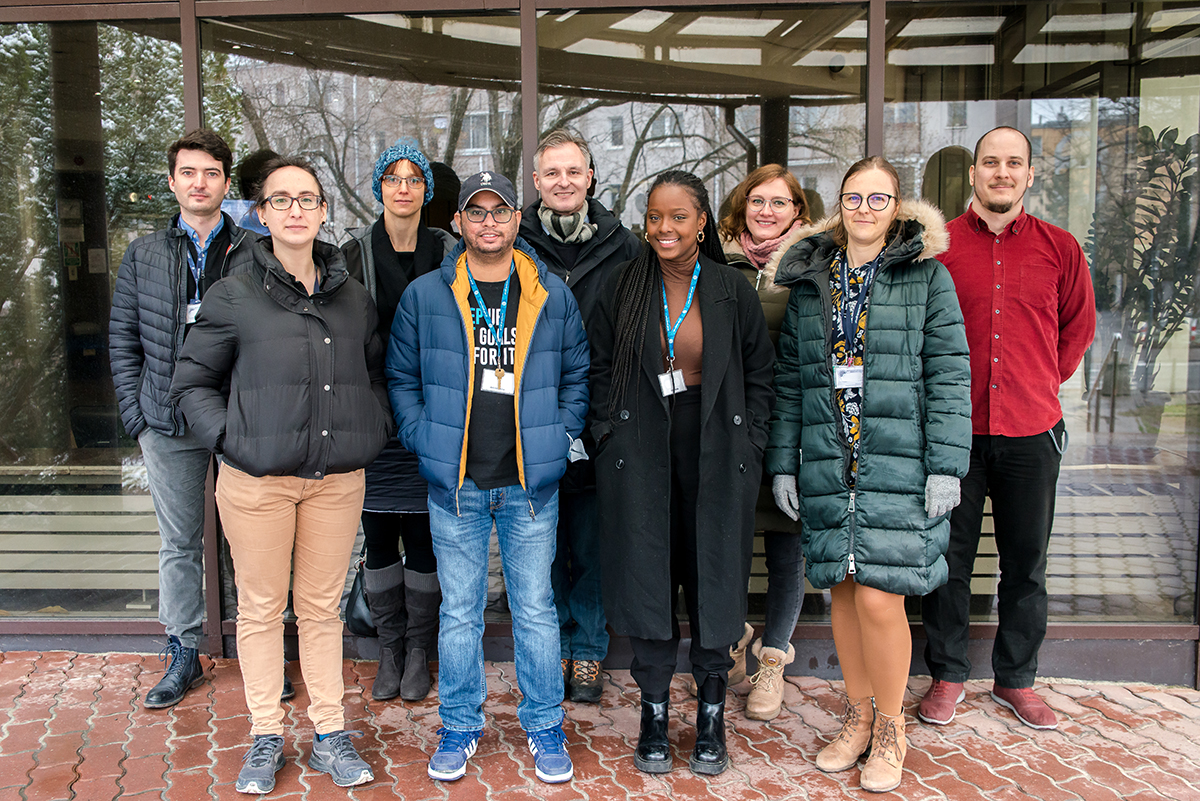

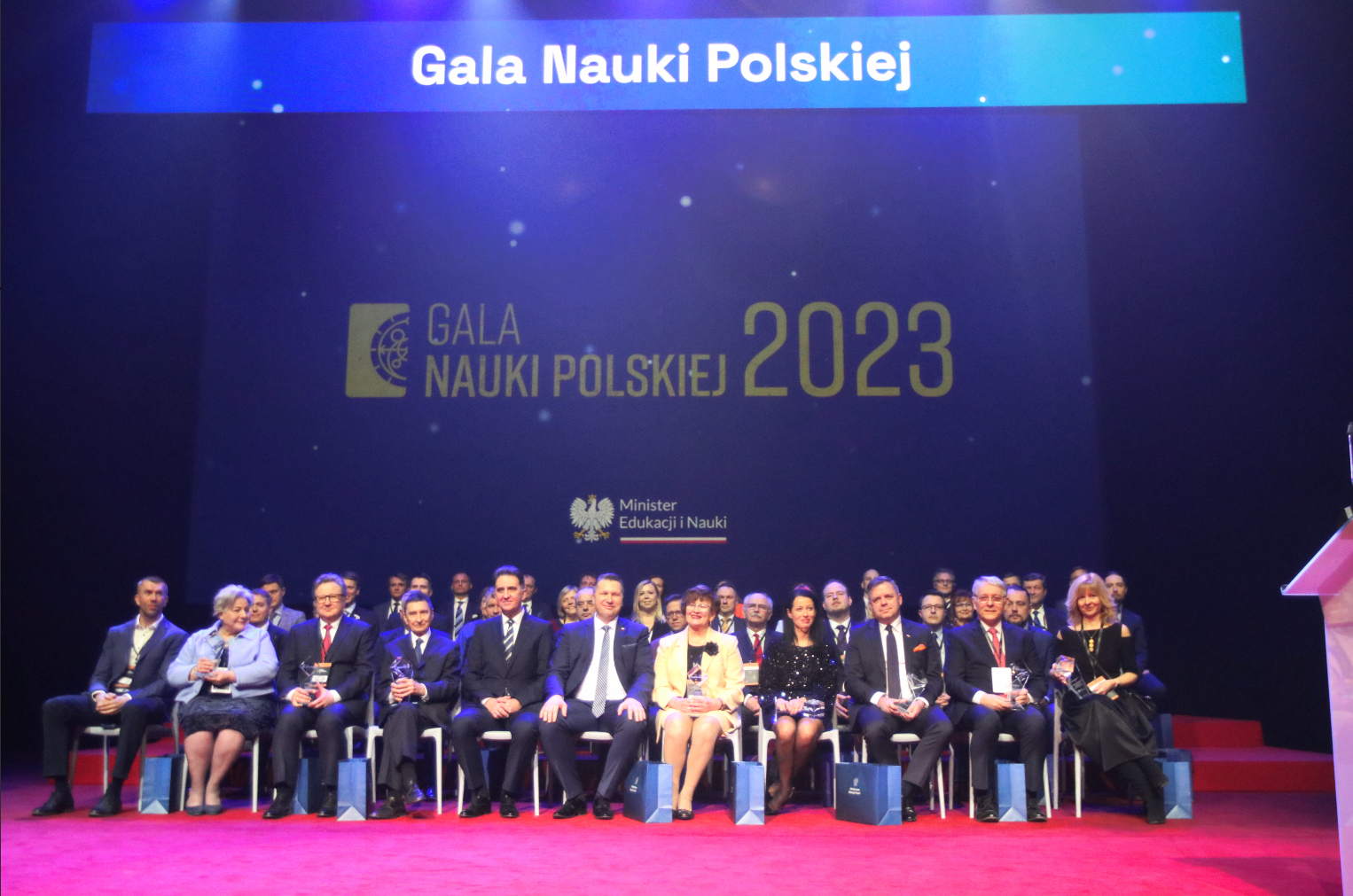
Aging is a fascinating biological process, hallmarked with multiple alterations in the vital activities of cells and the whole organism. For instance, it is associated with hampered immune responses and reduced ability to adapt to the surrounding conditions. Have you ever wondered how aging affects the ability to regulate iron levels in our bodies? Can a simple change in diet improve iron turnover efficiency in aging individuals? Patryk Ślusarczyk and Pratik Mandal, et al. under the leadership of Dr. Katarzyna Mleczko-Sanecka (Laboratory of Iron Homeostasis) and Dr. Wojciech Pokrzywa (Laboratory of Protein Metabolism) answered these questions in their latest article in the eLife magazine.
As we age, our bodies lose the ability to properly regulate iron levels. However, the mechanisms of these changes have not been fully understood yet. The research done by the scientists from the Laboratory of Iron Homeostasis and Laboratory of Protein Metabolism showed that red pulp macrophages (RPMs) - the cells that remove defective red blood cells - become impaired and die during aging. This leads to the formation of iron- and heme-rich protein aggregates and the accumulation of “old and used” red blood cells in the spleen. Further studies showed that feeding mice with a reduced iron content diet improved RPMs functions and thus enhanced organism's capacity to “recycle iron”.
This discovery suggests that limiting dietary iron may be a potential strategy for maintaining proper iron homeostasis while aging. It also provides new information on the relationship between aging and iron homeostasis as well as may inspire future research on improving health of the elderly.
Read the whole article

Dr. Urszula Białek-Wyrzykowska, the IIMCB Deputy Director for Development, took part in a conference entitled: "Scientific excellence has no gender" organized at the Faculty of Political Science and Journalism of Adam Mickiewicz University in Poznan by the Academy of Young Scientists of the Polish Academy of Sciences.. Her speech entitled: "Scientific excellence has no gender - a structured long-term program to equalize gender opportunities through changes in work culture and conditions" focused on the activities within that area undertaken by the IIMCB. Dr. Białek-Wyrzykowska presented also recommendations and examples of good practices implemented by the EU-LIFE – a consortium of European research institutes.
The problem of gender inequality in various aspects and areas of science, including the problem of hidden biases leading to disparities between men and women in science - it is an issue that has been a challenge for many years, not only in scientific community. Research and analysis reports on this issue published, among other institutions, by the National Science Center, the Foundation for Polish Science and the L'Oreal Foundation – clearly show the need to equalize disparities between representatives of both sexes at different levels and stages of scientific careers.
The conference organized by the Academy of Young Scientists of the Polish Academy of Sciences provided an excellent opportunity to start a dialogue among scientific research units. The aim of the event was also to develop real actions to stop the outflow of people of science from many research areas. The event was addressed to the authorities of scientific research units, representatives of the Ministry of Education and Science, science funding institutions in Poland and organizations involved in promoting science and scientific research in Poland.
The conference entitled: "Scientific excellence has no gender" was held on February 10, this year. It was co-organized by the National Science Center, the Center for Research on Women's Participation in Public Space at Adam Mickiewicz University in Poznan and the Office for the Promotion of Science "PolSCA" of the Polish Academy of Sciences in Brussels.
The participation of IIMCB representatives in the conference was funded by the MOSaIC project. 

For more information, please visit the website: https://amu.pan.pl/dnnmp/
https://www.iimcb.gov.pl/en/news-press-office?start=99#sigProIdd0a3e52506
What do we know about the positive genetic memory or transcriptional memory? What does it depend on? What exactly are the factors responsible for it? A recent article published in Cellular and Molecular Life Sciences by researchers from the Laboratory of Structural Biology contributes to a better understanding of positive genetic memory.
Genetic memory depends on a feed-forward loop that deposits H3K4 methylation, an activating chromatin mark, on already active promoters and enhancers. How the methyltransferases KMT2/MLL find their chromatin targets has not been understood. Stroynowska-Czerwinska and colleagues now show that clustered PHD domains in the KMT2/MLL methyltransferases alone are sufficient for the targeting. The known promoter or enhancer preferences of individual MLL/KMT2 methyltransferases are shown by the authors to be attributable to the presence or absence of the CXXC domains, respectively. The work presents the first genome-wide characterization of a histone reader domain in cells. MLL/KMT2 genes mutations are strongly associated with cancer. The authors show that even a single cancer-related missense mutation in the PHD domains can abolish targeting specificity. Therefore, the work also has medical implications.
Article reference:
Stroynowska-Czerwinska, A.M., Klimczak, M., Pastor, M. et al. Clustered PHD domains in KMT2/MLL proteins are attracted by H3K4me3 and H3 acetylation-rich active promoters and enhancers. Cell. Mol. Life Sci. 80, 23 (2023). https://doi.org/10.1007/s00018-022-04651-1
https://link.springer.com/article/10.1007/s00018-022-04651-1
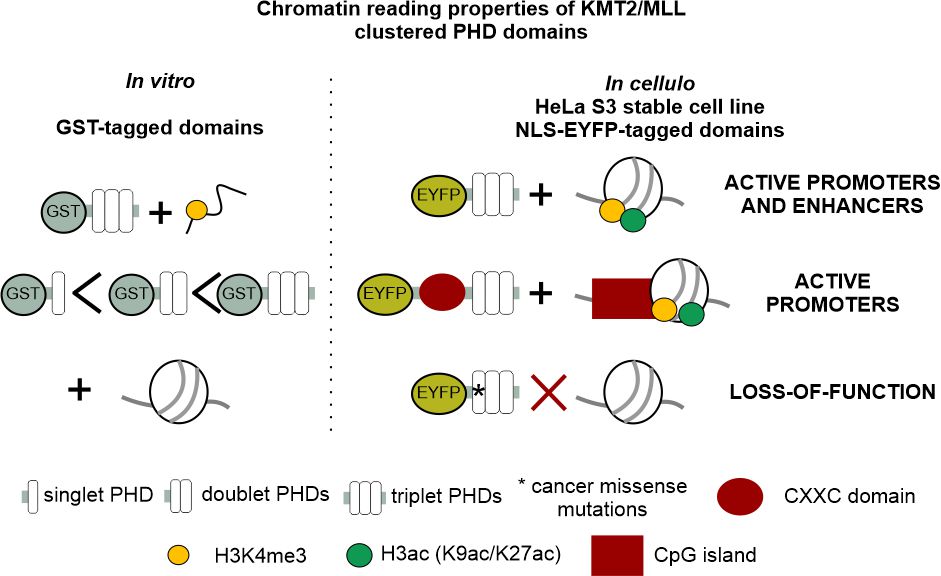
This week, on January 23-27, 2023, the International Institute of Molecular and Cell Biology in Warsaw held a course on Critical Reading of Scientific Papers which consisted of 2 lectures and 3 workshops. The course was highly appreciated by our researchers who emphasize the fact that following and reviewing of scientific literature are very relevant parts of their work.
The online lectures were given by Dr. Brooke Morriswood from the Department of Cell and Developmental Biology, University of Würzburg, Germany. His lectures focused on:
- the importance and value of making reading a regular part of one’s scientific activity;
- the content analysis of the individual elements of a scientific paper;
- the way in which young scientists can get involved in critical reading of scientific papers;
- the manner in which the surveillance of scientific literature can be carried out.
Over 50 IIMCB PhD students and researchers took part in the lectures. Dr. Morriswood provided the participants with a lot of practical clues, useful both for reading and writing scientific publications. - "I’m very glad that Brooke accepted our invitation to conduct the course on Critical Reading of Scientific Papers and I am sure that all of us will benefit from it. The lectures are accompanied by practical workshops for our PhD students that are taking place this week. I would like to thank our PhD students for their engagement and discussions over some interesting examples of scientific papers" - said prof. Marta Miączyńska, the Director of the IIMCB
The onsite workshops were dedicated to the PhD students. Three workshops were led by one of three Lab Leaders from the IIMCB: Prof. Marta Miączyńska, Prof. Matthias Bochtler, and Dr. Katarzyna Mleczko-Sanecka. The participants were divided into small groups in which they analyzed and discussed a chosen scientific article.
Dr. Brooke Morriswood is a group leader in the Department of Cell & Developmental Biology at the University of Würzburg, Germany. He is a molecular cell biologist with interests in the cytoskeleton, motor proteins, and membrane trafficking. He graduated from Cambridge University (2002) with a degree in biochemistry, and completed doctoral studies under the supervision of John Kendrick-Jones at the Laboratory of Molecular Biology, Cambridge (2006). He carried out his postdoctoral studies in the laboratory of Graham Warren at Yale University (2007) and the Max F. Perutz Laboratories in Vienna (2008-2014). Since 2015, Brooke has been a group leader at the University of Würzburg.
The course was supported by the MOSaIC project.


The Critical Reading of Scientific Papers lectures are supported by the MOSaIC project which has received funding from the European Union’s Horizon 2020 research and innovation programme under grant agreement no 810425
https://www.iimcb.gov.pl/en/news-press-office?start=99#sigProIdb14e7f5e4f


